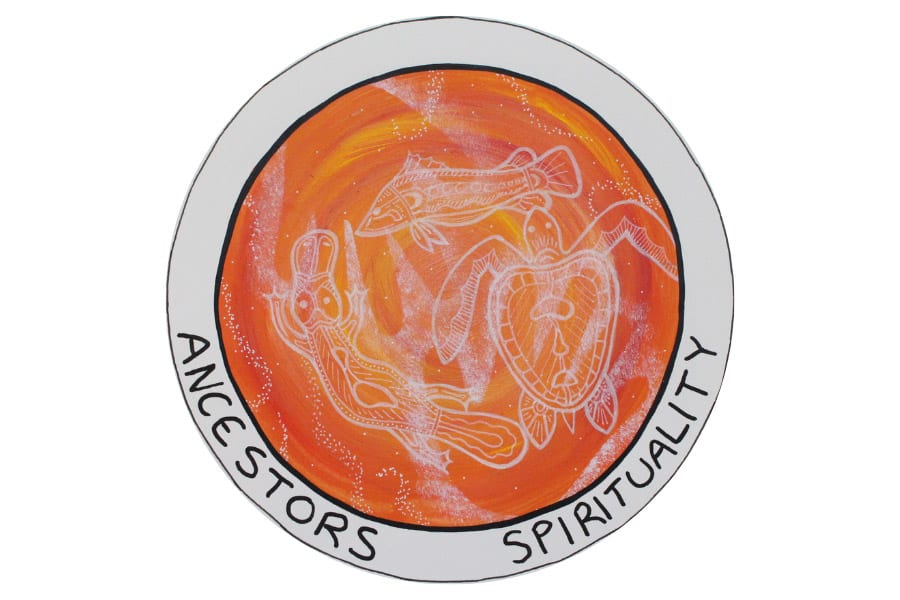The Centre for Healthcare Knowledge and Innovation is running a 5-part webinar series on the cultural determinants of health. So far, it’s explored a framework for the cultural determinants of health and social and emotional wellbeing, as well as connection to land and Country. If you missed the live webinars you can catch up on them on the Centre’s website.
The third webinar in the series invites a fresh panel to explore connection to spirituality and ancestors.
Connection to spirituality and ancestors
Friday 16 July
12pm – 1:30pm
Part of listening, learning and living in respectful relationship with one another involves seeking to understand Indigenous spirituality, which is fundamental to many Indigenous people’s identity and worldview.
Aboriginal cosmogony begins at the ‘Dreamtime’. Hidden in the sky, in the sea and under the surface of the Earth are Dreamtime heroes, also called creation ancestors. The creation ancestors laid down not only the foundations of all life, but also what people had to do to maintain their part of this interdependence. Law ensures that each person knows his or her connectedness and responsibilities for other people (their kin), for Country (including watercourses, landforms, the species and the universe), and for their ongoing relationship with the ancestor spirits themselves.
A healthy respect for the power of spirit and ancestors is crucial for those working in the health and welfare space.
Facilitator
Professor Kerry Arabena
A descendant of the Meriam people from the Torres Strait, Kerry’s work has brought her to the forefront of Indigenous affairs in Australia. A former social worker with a Doctorate in Environmental Science, Kerry has held senior positions including Chair of Indigenous Health at the University of Melbourne, Executive Director of First 1000 Days Australia, CEO of the Lowitja Institute and Director of Indigenous Health Research at Monash University. Kerry is today the Managing Director of Karabena Consulting.
Panel
Tyson Yunkaporta
Senior lecturer in Indigenous Knowledges at Deakin University in Melbourne
Tyson is an academic, arts critic, and a researcher who is a member of the Apalech Clan in far north Queensland. He carves traditional tools and weapons and is the author of Sand Talk – How Indigenous Thinking Can Save the World. Tyson looks at global systems from an Indigenous perspective and asks how contemporary life diverges from the pattern of creation.
Dr. Tjanara Goreng Goreng
Founder and Chief Visionary at OneINMA Global
Tjanara is a Wakka Wakka/Wulli Wulli woman from Central Queensland and carries the traditions of her clan through medicine practice, being a Songwoman and teaching Aboriginal Law & Spirituality to people throughout the world. Tjanara’s expertise is the use of Indigenous Knowledge systems in leadership education and in the design and development of methodology and technology for Indigenous specific leadership mentoring.
Kyle Slabb
Director, Banaam Applied Cultural Intelligence
Kyle Slabb is a Gudjingburra Bundjalung descendant and has been involved in cultural consultancy and education for more than 20 years. He started Banaam as a way to support businesses to better understand their Indigenous employees but also to apply Indigenous principles of relationship building, communication, mutual responsibility and non-hierarchical management structures to everyday practice.
Marni Tuala
Deputy Director Aboriginal Health, Healthy North Coast
Marni is a proud Bundjalung woman who grew up on Country in Northern NSW and comes from a long line of healers. Marni is passionate about her responsibility to her community to provide role modelling and mentoring, and enjoys contributing to the development of an Aboriginal and Torres Strait Islander health workforce through nurturing the next generations and developing a safe system for them to work in.



